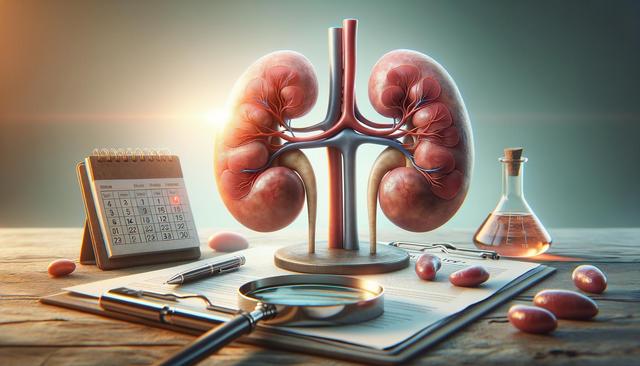Recognizing the Early Symptoms of Kidney Disease
Kidney disease often progresses silently, making early detection crucial for effective intervention. The initial signs can be subtle and easily mistaken for other conditions. Paying attention to changes in bodily functions and overall health can help individuals identify potential kidney issues before they become severe. Common early symptoms include:
- Persistent fatigue and low energy levels
- Changes in urination, such as increased frequency or foamy urine
- Swelling in the ankles, feet, or hands due to fluid retention
- Shortness of breath or difficulty sleeping
- High blood pressure that is difficult to control
Understanding these symptoms and their potential link to kidney function is especially important for those with risk factors such as diabetes or hypertension. These health conditions are often associated with kidney damage and may accelerate the decline in kidney performance if unmanaged.
Understanding the Progression to Stage 4 CKD
As kidney disease progresses to Stage 4, the kidneys operate at a significantly reduced capacity—typically between 15% and 29% of normal function. At this stage, the buildup of waste and excess fluids in the body can lead to more pronounced symptoms and complications. Individuals may experience nausea, itching, muscle cramps, and a metallic taste in the mouth. The risk of cardiovascular issues also increases as the kidneys struggle to regulate blood pressure and maintain electrolyte balance.
For individuals at this stage, regular consultations with a nephrologist are essential. Monitoring lab results like glomerular filtration rate (GFR), creatinine levels, and protein in the urine helps guide treatment options. Lifestyle adjustments, including a specialized diet for diabetes high blood pressure and kidney disease, become even more critical to slow progression and manage symptoms.
Alternatives to Dialysis for Stage 4 CKD
Although dialysis is a common treatment for advanced kidney failure, it’s not the only option for those in Stage 4 CKD. Many patients explore alternative strategies to delay or potentially avoid dialysis altogether. These include:
- Adopting a kidney-friendly diet that limits sodium, phosphorus, and protein
- Using medications to control blood pressure and manage anemia
- Staying physically active to support cardiovascular health
- Monitoring fluid intake and maintaining a healthy weight
One vital aspect in delaying dialysis is staying properly hydrated with suitable beverages. For those wondering what to drink to keep kidneys healthy, choices like water, herbal teas, and certain fruit-infused waters are generally well-regarded. It’s also helpful to ask a healthcare provider what is the best thing to drink for your kidneys based on individual needs and medical conditions.
The Role of Diet in Managing Kidney Health
Nutrition plays a pivotal role in managing kidney disease, particularly in advanced stages. A targeted diet for diabetes high blood pressure and kidney disease can help reduce the strain on the kidneys while controlling other contributing factors. Key dietary guidelines often include:
- Reducing sodium intake to help manage blood pressure
- Limiting protein to decrease the kidneys’ workload
- Monitoring phosphorus and potassium levels
- Choosing whole, unprocessed foods
Consulting with a renal dietitian can provide customized meal plans that consider comorbidities like diabetes and hypertension. Staying mindful of fluid balance and portion control is also crucial. Understanding what to drink to keep kidneys healthy complements these dietary efforts and can make a significant difference in overall kidney function.
Maintaining Quality of Life with Stage 4 CKD
Living with Stage 4 CKD involves more than just medical treatment—it also requires emotional and psychological support. Patients often face lifestyle changes that can affect their daily routines and long-term outlook. Maintaining a strong support system, engaging in stress-reducing activities, and staying informed about their condition are important for mental well-being.
Open communication with healthcare providers allows patients to make informed decisions and consider the full range of treatment options, including alternatives to dialysis. Staying hydrated and learning what is the best thing to drink for your kidneys can contribute to comfort and stability in everyday life. Community resources, patient education programs, and peer support groups can also provide encouragement and practical advice for managing the condition effectively.
Conclusion: Taking Proactive Steps Toward Kidney Health
Recognizing the early signs of kidney disease and taking proactive steps can make a meaningful difference, especially for those at risk of progressing to Stage 4 CKD. By prioritizing a balanced lifestyle, adhering to a personalized diet for diabetes high blood pressure and kidney disease, and staying informed about what to drink to keep kidneys healthy, individuals can better manage their condition and explore alternatives to dialysis. Early intervention, ongoing monitoring, and comprehensive care are essential for maintaining kidney function and improving overall quality of life.




Leave a Reply